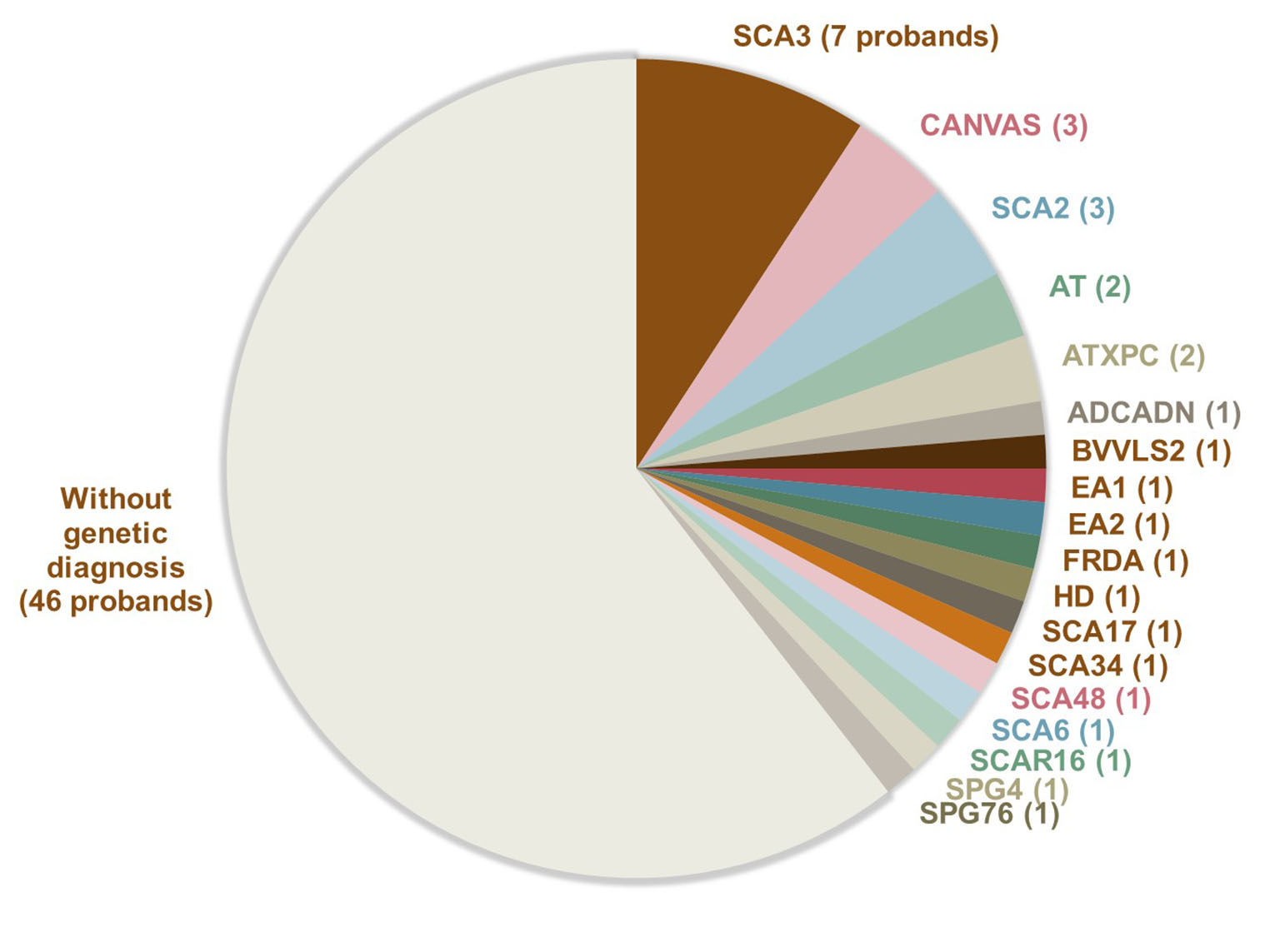Category: Ataxia
Objective: In this study, we aimed to examine clinically and genetically a patient series with ataxia from southern Sweden with known or unknown genetic causes. We describe the clinical findings in detail. We investigated the molecular etiology in previously undiagnosed cases using the current genetic testing methods, thus determining the population’s diagnostic yield.
Background: Hereditary ataxia is a heterogeneous group of complex neurological diseases characterized by slowly progressive gait and balance impairment and limb incoordination. Many forms of hereditary ataxia show additional signs and symptoms that could be associated with many different neurological conditions. Next-generation sequencing methods have become a great help in clinical diagnostics, but it may remain challenging to determine if a genetic variant is the cause of the patient’s disease.
Method: We compiled a consecutive single-center series of 87 patients from 76 families with progressive ataxia of known or unknown etiology and investigated them clinically and genetically using whole exome or whole genome sequencing. Test methods were selected depending on family history, clinical phenotype, and availability. Genetic results were interpreted based on American College of Medical Genetics criteria. For high-suspicion variants of uncertain significance, renewed bioinformatical and clinical evaluation was performed to assess the level of pathogenicity.
Results: Thirty (39.5%) of the 76 families had received a genetic diagnosis at the end of our study. We present the predominant etiologies of hereditary ataxia in a defined ataxia patient series from Sweden [figure1]. In two families, we established a clinical diagnosis although the genetic variant was classified as “of uncertain significance” only, and in an additional three families, final results are pending. In one family, we found a clearly pathogenic variant but suspect it does not explain the full clinical picture.
Conclusion: We conclude that correct interpretation of genetic variants in complex neurogenetic disease requires both genetics and clinical expertise. The neurologist’s careful phenotyping remains essential to confirm or reject a diagnosis, also by reassessing clinical findings after a candidate genetic variant is suggested. Collaboration between neurology and clinical genetics and combination of clinical and research approaches optimizes diagnostic yield.
To cite this abstract in AMA style:
S. Gorcenco, E. Kafantari, J. Wallenius, C. Karremo, E. Alinder, S. Dobloug, M. Landqvist Waldö, E. Englund, H. Ehrencrona, K. Wictorin, K. Karrman, A. Puschmann. Clinical and genetic analyses of a Swedish patient series diagnosed with ataxia [abstract]. Mov Disord. 2023; 38 (suppl 1). https://www.mdsabstracts.org/abstract/clinical-and-genetic-analyses-of-a-swedish-patient-series-diagnosed-with-ataxia/. Accessed February 5, 2026.« Back to 2023 International Congress
MDS Abstracts - https://www.mdsabstracts.org/abstract/clinical-and-genetic-analyses-of-a-swedish-patient-series-diagnosed-with-ataxia/

